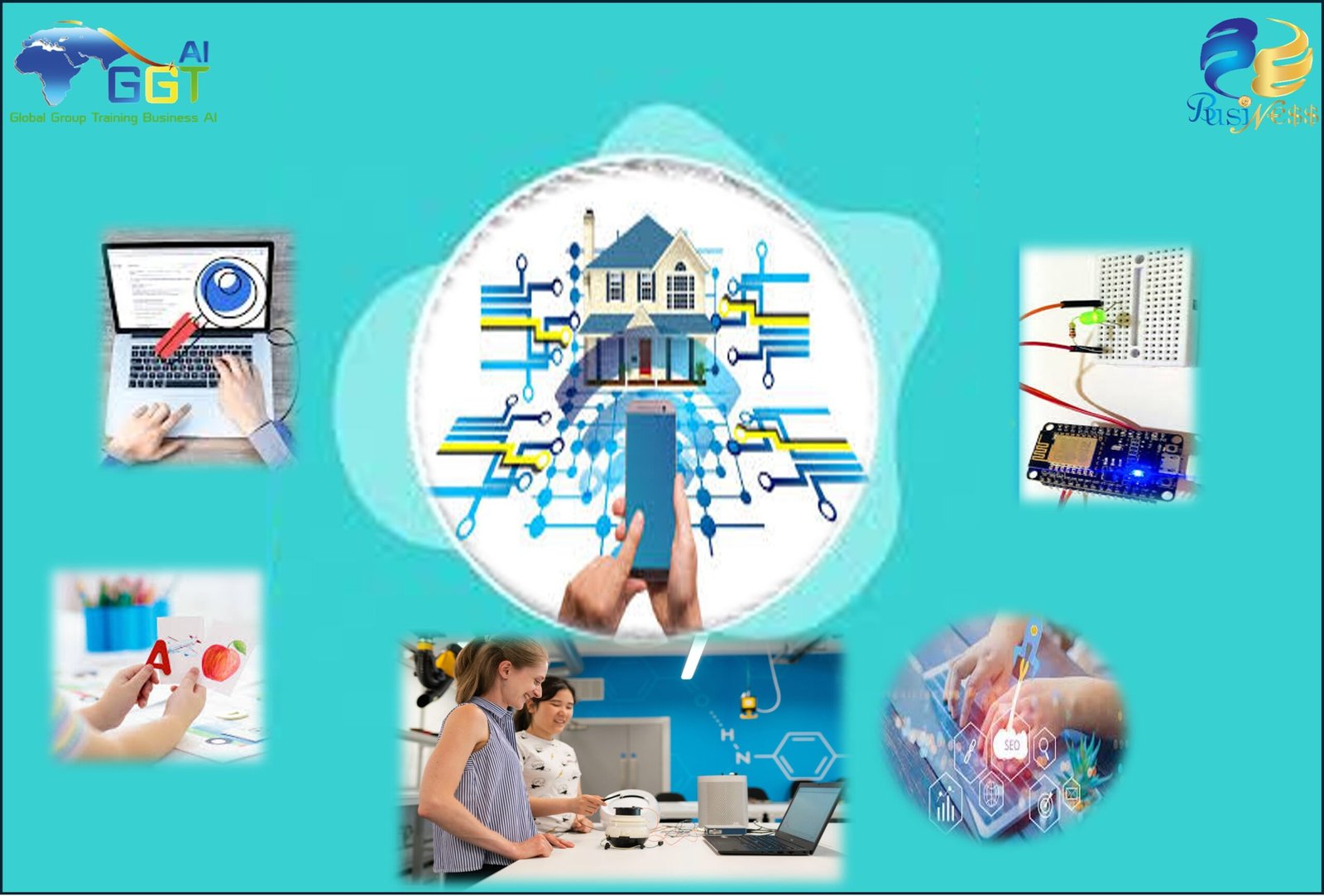

Contents:
I. Smart Projects
II. Ideas for Smart Projects in Various Fields
III. Success Stories of Smart Projects
Conclusion
Introduction:
“Smart projects” represent a revolution in our modern world, offering innovative solutions to improve quality of life across various fields. This article explores simple ideas for smart projects, highlights success stories of smart projects globally, and provides practical steps for developing effective smart projects.
I. Smart Projects
The current market is witnessing significant development in the field of smart projects, where simple ideas can turn into successful projects thanks to technology and innovation. Smart projects utilize modern technologies and innovative solutions to offer products or services that efficiently and effectively meet changing customer needs. These projects can encompass various fields such as fintech, healthcare, education, renewable energy, and other vital areas.
Smart projects are characterized by their ability to provide advanced solutions that contribute to improving the quality of life and facilitating daily operations. For instance, smart companies can use Big Data and data analysis to offer personalized services that accurately meet customer needs. Artificial Intelligence (AI) can be used to develop new products that quickly and effectively adapt to market changes.
One of the key features of smart projects is their adaptability to economic challenges and changes. They can enhance production processes, reduce costs, and increase revenues through the use of modern technologies. Additionally, smart projects promote innovation and competitiveness, offering companies greater opportunities for growth and expansion in local and global markets.
Turning simple ideas into smart projects is a great opportunity for innovation and leveraging modern technology
In recent years, smart projects have seen significant development thanks to rapid technological advances and continuous innovations. This development has given startups and entrepreneurs the chance to turn simple ideas into successful projects that positively impact society and the economy. Through these projects, we can now benefit from innovative solutions that make our daily lives easier, more efficient, and more sustainable.



II. Ideas for Smart Projects in Various Fields
Turning simple ideas into smart projects is a great opportunity for innovation and leveraging modern technology. Creative thinking can transform simple ideas into successful ventures. For example, wearable devices can be used to monitor health and fitness. This technology provides accurate data that can be analyzed to improve lifestyle and personal health.
Another idea is to develop mobile applications to offer customized services. These applications can target various fields such as education, healthcare, and logistics. For instance, a language learning app can use AI to provide a personalized educational experience for each user, enhancing learning effectiveness.
Furthermore, Internet of Things (IoT) technologies can be used to turn homes into smart homes. By installing internet-connected sensors, lighting, air conditioning, and other household devices can be controlled remotely. These projects help save energy and improve home security.
Other ideas for smart projects include developing innovative e-commerce platforms. Using AI and data analysis, online shopping experiences can be improved, personalized recommendations can be provided, and inventory management can be optimized.
Implementing these ideas does not necessarily require massive investments. Small projects can start using available technology like open-source software and cloud computing. These tools help reduce startup costs and allow a focus on innovation and quality.
In summary, simple ideas can be the foundation for successful smart projects if implemented correctly using available technology. Innovation and creativity are the keys to turning these ideas into tangible realities.
1. Smart Transportation:
– Intelligent traffic management systems to reduce congestion and improve vehicle flow.
– Car-sharing or bike-sharing applications.
– Smart traffic signal control systems.
2. Smart Energy:
– Energy consumption management systems for buildings and homes.
– Use of renewable energy sources like solar or wind power.
– Smart grids for efficient electricity distribution.
3. Smart Healthcare:
– Smart home healthcare applications.
– Internet-connected medical devices to remotely collect patient data.
– Precision surgical robots.
4. Smart Agriculture:
– Intelligent irrigation systems to control water consumption and increase productivity.
– Use of sensors to analyze soil and climate properties.
– Vertical farming in urban areas.
5. Smart Education:
– Interactive educational platforms.
– Smart applications to tailor learning to each student’s needs.
– Use of virtual and augmented reality technologies in education.
Share Your Ideas!
What are your ideas for other smart projects? Do you have ideas for smart projects that can improve your community? Share your thoughts in the comments.
III. Success Stories of Smart Projects
Success stories of smart projects are a source of inspiration for many entrepreneurs, demonstrating how simple ideas can turn into large and successful ventures.
One of the most prominent stories is Airbnb. The idea started from the founders’ need to save money by renting out part of their apartment, and it later transformed into one of the largest accommodation platforms in the world.
The Dropbox project originated from a simple idea to store files online and has grown to become one of the most widely used cloud storage services. A key lesson from this story is the importance of meeting a real market need in innovative and smart ways.
The Uber project began with a simple idea to provide convenient and affordable transportation via a mobile app. This project has been hugely successful and has changed the concept of public transportation in many cities worldwide. The story illustrates the importance of leveraging technology to meet community needs in new ways.
Smart Cities:
– Barcelona: One of the first cities to adopt the “smart city” concept. Initiatives include:
– A city-wide fiber-optic network.
– Smart systems for managing energy, water, and waste.
– A smart platform enabling citizens to communicate with local government.
– Singapore: Known as a global hub for innovation and smart projects. Initiatives include:
– An intelligent traffic management system to reduce congestion.
– A wide network of smart cameras to enhance security.
– A smart energy management program to help reduce consumption.
These stories show that simple ideas can form the basis of smart projects if implemented correctly and intelligently. Focusing on providing innovative solutions to real problems, using technology effectively, and learning from previous experiences are all factors contributing to project success. These examples prove that smart projects are not necessarily complex or require huge resources; they can start from a simple idea and achieve great success.
Conclusion
“Smart projects” are a fundamental pillar for improving quality of life and achieving sustainable development. Through collaborative efforts and effective strategies, we can build a smart future that contributes to finding innovative solutions to the challenges we face.